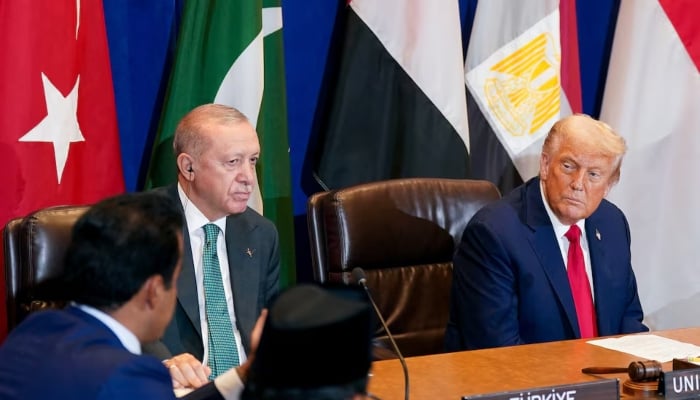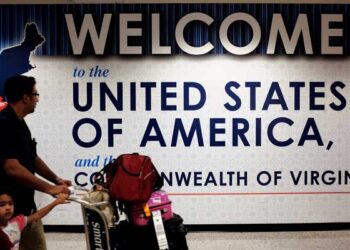Select Language:
President Donald Trump and Turkish President Tayyip Erdogan met during the 80th United Nations General Assembly in New York City on September 23, 2025. The relationship between NATO countries, especially those with the largest armies, has been notably warm in recent years. Erdogan aims to use this improved rapport to persuade the U.S. to lift sanctions and approve the sale of F-35 fighter jets.
Erdogan’s visit marks his first to the White House in nearly six years. Turkey seeks to capitalize on the current U.S. administration’s openness to significant arms and trade agreements. While the Biden administration had kept Turkey at a distance, partly due to Ankara’s close ties with Russia, the Trump era saw a shift—favoring Moscow less and fostering closer personal ties with Erdogan.
During Trump’s first term, their relationship had its ups and downs, but since his return to office, both leaders have aligned on Syria, a major point of contention before. Both countries now support the Syrian government’s central authority. However, disagreements persist over Israel’s actions in Gaza, with Ankara condemning Israeli attacks as genocide—an issue that could complicate otherwise friendly negotiations.
Erdogan, who has led Turkey for over two decades, also emphasized the importance of speaking out against Gaza’s violence, framing it as a shared responsibility. U.S. Secretary of State Marco Rubio later remarked that global leaders, including Erdogan, might voice their opinions but ultimately turn to the White House when seeking results.
Turkish hopes are high that Trump and Erdogan can find a workaround for U.S. sanctions initially imposed in 2020 over Turkey’s acquisition of Russian S-400 missile systems. Such a breakthrough might enable Turkey to purchase Lockheed Martin F-35 fighter jets again—initially a buyer and manufacturer before being barred over the S-400s.
Former Turkish ambassador Timur Soylemez commented that, despite expected resistance from Congress, a green light for F-35 sales to Turkey could be possible if both sides exhibit the political will and work through the issues diplomatically. Trump expressed optimism about F-35 talks ahead of the meeting.
Defense topics, including negotiations for the F-16 jets Turkey also desires, are expected to be central to discussions, along with regional conflicts, energy concerns, and trade. A draft U.S. statement of intent points to several sales to Turkey, including new F-16s—though F-35s remain off the table due to legal restrictions linked to the S-400 issue.
Turkey aims to bolster its air power by acquiring 40 Eurofighter Typhoons, although this move has raised concerns among regional allies like Israel and Greece. The U.S. also plans to highlight Turkey’s agreement to purchase over 200 Boeing aircraft, including 787 and 737 jets, with negotiations ongoing for engines worth around $10 billion.






